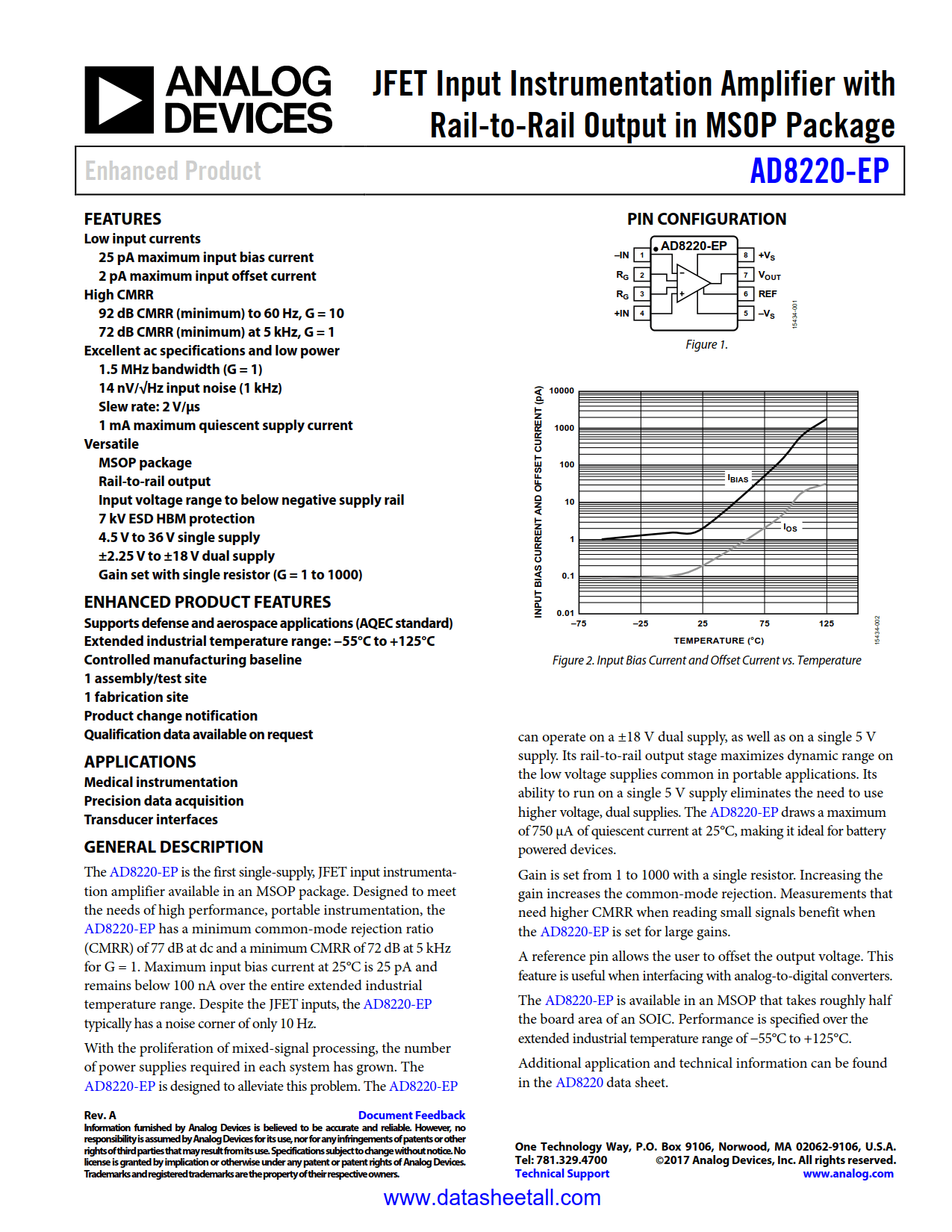
AD8220-EP Datasheet
JFET Input Instrumentation Amplifier with Rail-to-Rail Output in MSOP Package

JFET Input Instrumentation Amplifier with Rail-to-Rail Output in MSOP Package
| Part No. | In Stock | Price | Packaging | SPQ | Marking | MSL | Pins | Temp Range | Package Description |
| AD8220TRMZ-EP | 0 | $7.191 | Tube | 50 | Y6T | 1 | 8 | -55°C ~ 125°C | 8-Lead MSOP |
| AD8220TRMZ-EP-R7 | 3893pcs | $7.191 | Reel | 1000 | Y6T | 1 | 8 | -55°C ~ 125°C | 8-Lead MSOP |
ENHANCED PRODUCT FEATURES
The AD8220-EP is the first single-supply, JFET input instrumentation amplifier available in an MSOP package. Designed to meet the needs of high performance, portable instrumentation, the AD8220-EP has a minimum common-mode rejection ratio(CMRR) of 77 dB at dc and a minimum CMRR of 72 dB at 5 kHz for G = 1. Maximum input bias current at 25°C is 25 pA and remains below 100 nA over the entire extended industrial temperature range. Despite the JFET inputs, the AD8220-EP typically has a noise corner of only 10 Hz.
With the proliferation of mixed-signal processing, the number of power supplies required in each system has grown. The AD8220-EP is designed to alleviate this problem. The AD8220-EP can operate on a ±18 V dual supply, as well as on a single 5 V supply. Its rail-to-rail output stage maximizes dynamic range on the low voltage supplies common in portable applications. Its ability to run on a single 5 V supply eliminates the need to use higher voltage, dual supplies. The AD8220-EP draws a maximum of 750 µA of quiescent current at 25°C, making it ideal for battery powered devices.
Gain is set from 1 to 1000 with a single resistor. Increasing the gain increases the common-mode rejection. Measurements that need higher CMRR when reading small signals benefit when the AD8220-EP is set for large gains.
A reference pin allows the user to offset the output voltage. This feature is useful when interfacing with analog-to-digital converters.
The AD8220-EP is available in an MSOP that takes roughly half the board area of an SOIC. Performance is specified over the extended industrial temperature range of −55°C to +125°C.
Additional application and technical information can be found in the AD8220 data sheet.